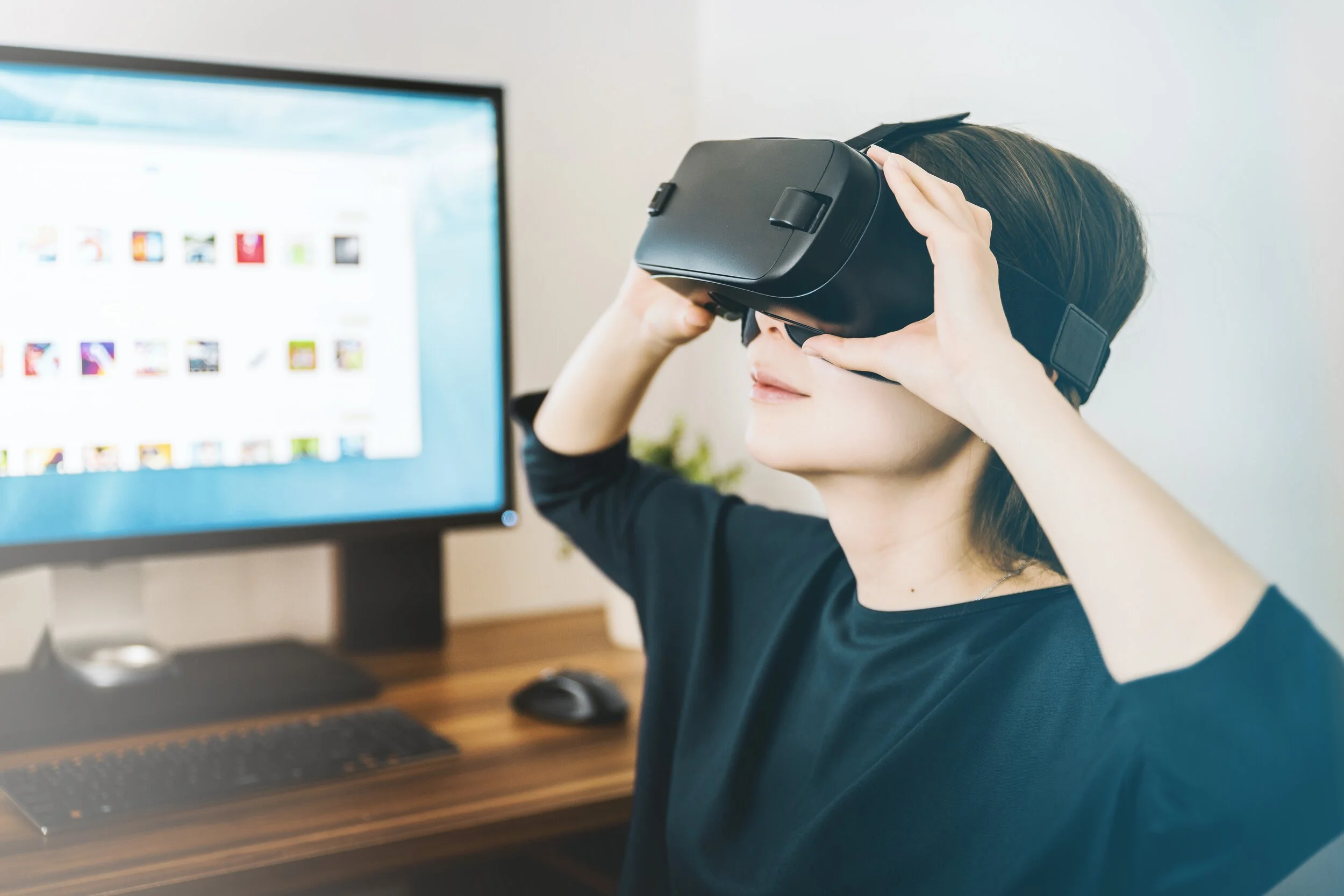Hypnotic World of Virtual Reality: Sensory Perception of Autism explored in 3D
Sarune Savickaite is a first year PhD in the School of Psychology, College of Science & Engineering. Sarune has graduated BA Hons Illustration from the University of Bedfordshire and BSc Hons Psychology from the University of St Andrews. In between studies and whilst waiting for her PhD funding, Sarune worked in PR, publishing, and project management. Currently, she is in her first year of the PhD, looking into perceptual aspects of Autism and exploring it using Virtual Reality. Sarune’s PhD is through an Industrial Partnership with Sublime Digital. She is currently working on a number of projects with them alongside her studies. You can contact her via email.
Virtual Reality has been used in research since the late 1980s, but due to the cost and technical limitations, it didn’t take off. In 2014, however, Facebook purchased the start-up VR company Oculus and this marked the new age for Virtual Reality. New headsets were lighter and smaller, and most importantly, a lot cheaper. Other VR headset manufacturers emerged, new software and games were developed, and in just over 5 years, industry leaped forward enormously. Now, the new Oculus Quest (which is just under £600) allows us access to the virtual world from anywhere.
And Glasgow is getting behind VR technology. UofG received a grant in 2018 from Innovate UK for Project Mobius, which aims to develop VR tools for higher education. Some UofG faculty experimented with using VR to view manuscript pages in Oct 2018. And Glasgow School of Art have had a pathway for Games and Virtual Reality since September 2018.
Future possibilities and development of VR were explored at the AWE 2019 conference in Munich, which I volunteered at in October last year. It contained exhibitions with over 90+ participants and a conference with 100+ speakers discussing topics such as training, education and visualization, with emphasis on research into human experiences…all of which ties into my research.
Example of the early headsets. More information on the history of VR is available at our lab’s website.
The new Oculus Quest headset and controllers.
The proposal for my PhD research into perceptual differences of Autism using Virtual Reality has been developed by Dr David Simmons and myself, together with Dr Neil McDonnell from the School of Philosophy and Sublime Digital. The studentship started with a Masters project setting up a baseline for using Virtual Reality in psychology research and preparing the first set of experiments. We now have 6 undergraduate students continuing the experiment and hope to get more studentships in due course.
We are also partnering with a variety of groups around Scotland interested in Virtual Reality and immersive technology. Glasgow AR/VR group which is run by a software developer from JP Morgan, runs regular meet ups and connects researchers, businesses and any interested parties. The last meeting of 2019 was a discussion around the Immersive UK report and the need to put Glasgow on the map for immersive technologies. We are in the process of organizing a collaborative event at the University of Glasgow in 2020.
The Project
Autism is often described by difficulties with social interaction, sensory processing and repetitive behaviour. It affects around 1% of the UK population. Our research is interested in the sensory aspects of Autism and particularly the autobiographical accounts of ‘fragmented world’ and sensory overload. Donna Williams in her book Nobody Nowhere (1992) describes these experiences: ‘my bed was surrounded and totally encased by tiny spots which I called stars, like some kind of mystical glass coffin. I have since learned that they are actually air particles, yet my vision was so hypersensitive that they often became a hypnotic foreground with the rest of ‘the world’ fading away’. Nagai Lab in Japan has attempted to replicate this feeling in Virtual Reality which helps us visualise what it may feel like to have atypical and hypersensitive perception.
We also drew inspiration from extraordinary autistic people such as Temple Grandin, who has described her experiences as ‘seeing in pictures’, Stephen Wilthshire, an extraordinary savant with detail-oriented memory and artistic talent, and Iris Grace, an exceptional girl who produces intricate paintings with the help of her cat Thula. These are just a few examples of extraordinary perception in Autism and how it often translates into art as self-expression and a form of therapy.
Exceptionally detailed drawing by Stephen Wiltshire.
The goal in our research is to enable autistic individuals to draw in virtual reality and help them express their perceptual experiences visually. So far, we have tried a number of drawing tasks completed through VR, including the Rey-Osterrieth Complex Figure, in which participants draw a complex image first by copying and then from memory. We have used TiltBrush by Google to run our experiments and hope to write an independent VR app in due course. TiltBrush is a fantastic tool for any drawing task and many artists have explored this medium creating fantastic 3-D images. You can access most of these at Poly, where everybody using TiltBrush can upload their work as three-dimensional interactive images.
A copied drawing of the Rey–Osterrieth complex figure: from Wikipedia.
TiltBrush by Google allows you to draw in 3-D.
Research in our lab is still ongoing, and we are making our first steps towards the goal of enabling immersive visual self-expression in Autism. If you would like to know more about our research or would like to take part in our studies please get in touch.
And if you’ve had any experiences with VR, tell us in the comments or on Twitter @UofG_PGRblog.









